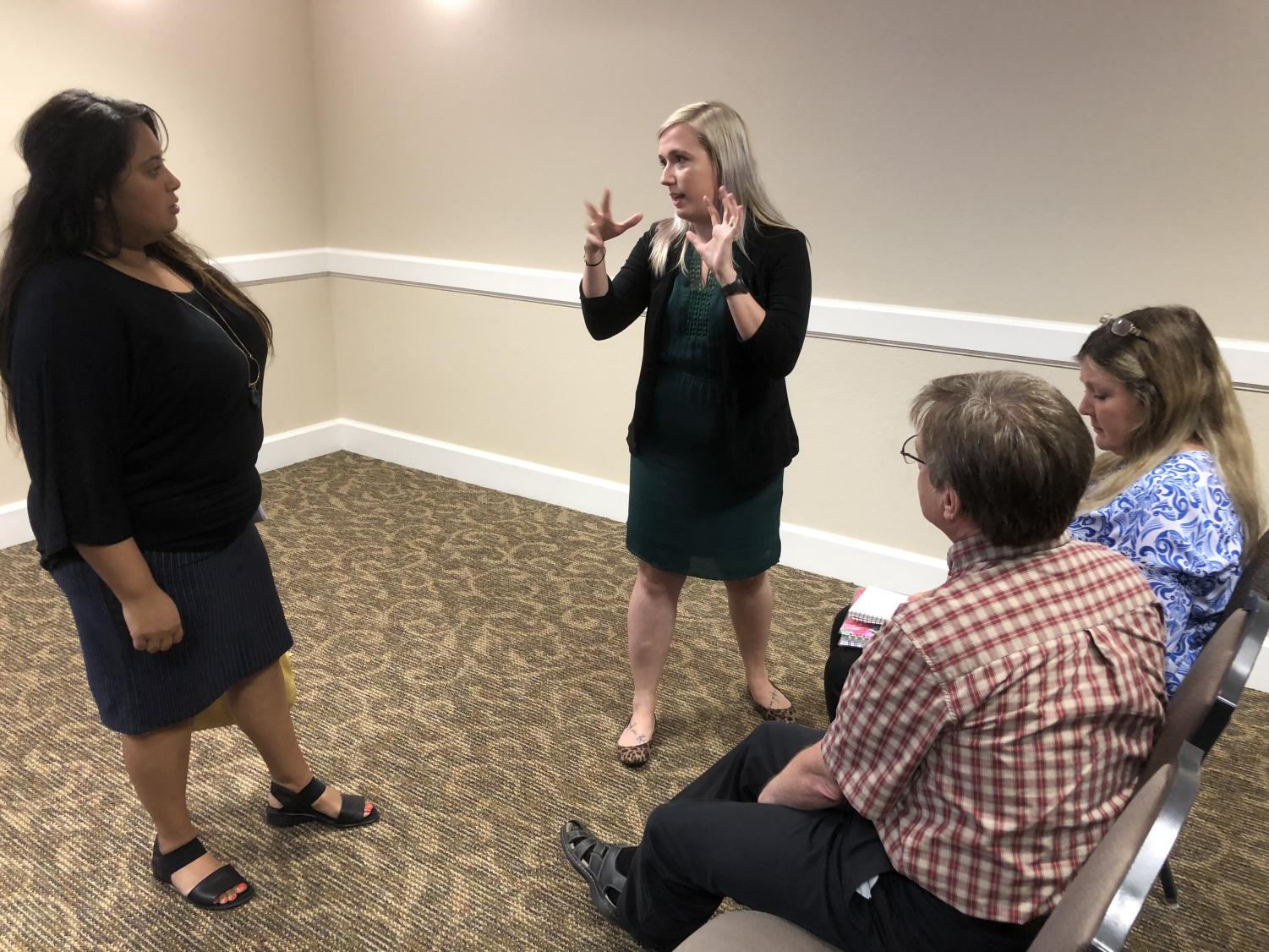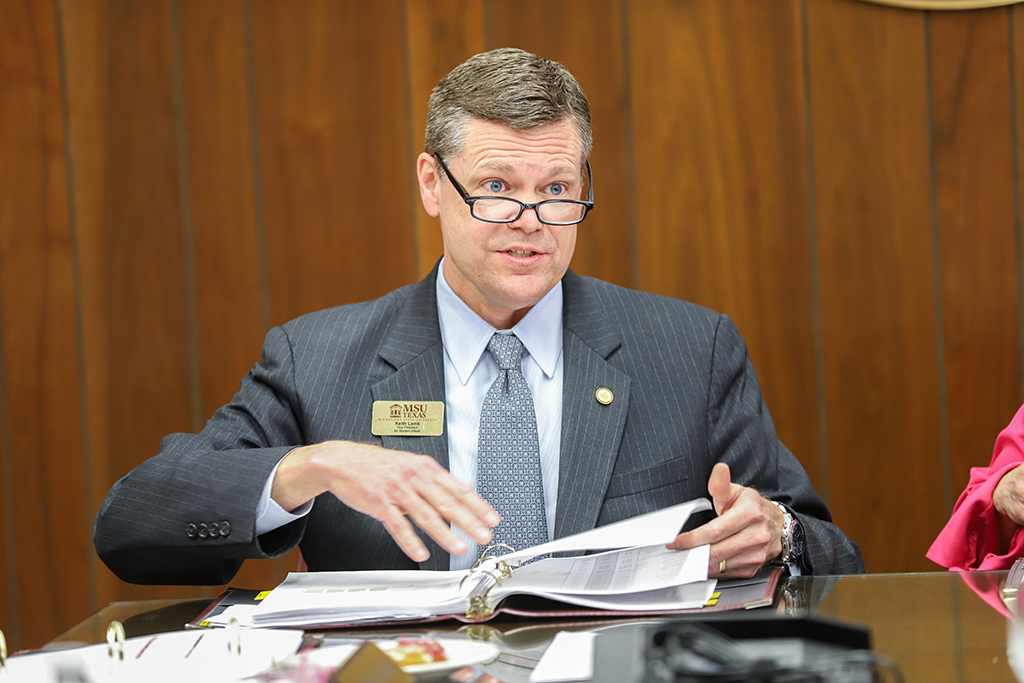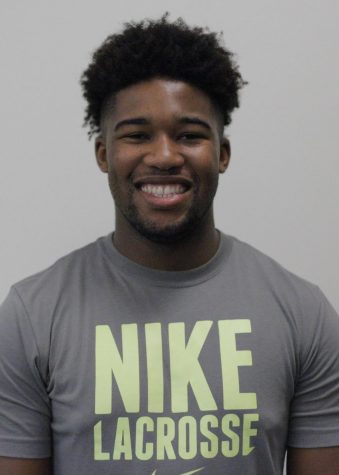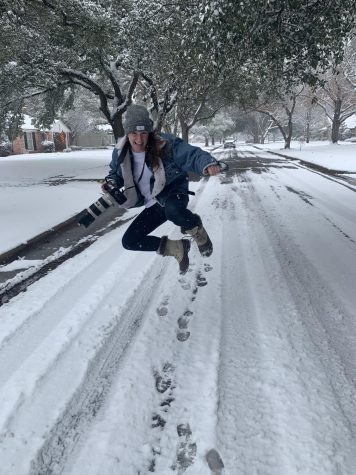Title IX Coordinator search: an update of where we are now
March 4, 2020
Midwestern State University has been operating without an effective Title IX Coordinator for the last two months. The former Title IX Coordinator, Rachael Fornof, was at MSU for about a year and a half and left the campus in early December of last year due to the relocation of her husband to a different part of the country. Fornof was a well-received Title IX Coordinator who was active in campus life, well known by students and brought campus-wide attention to Title IX via many different programs and events that she brought to campus. Since her departure, Amanda Snodgrass, the assistant athletic director of business and finance and student women administrator, has taken over from Fornof as the acting Interim Title IX Coordinator at the request of Keith Lamb, vice president of student affairs. Snodgrass graduated from MSU with a master’s in counseling, a bachelor’s in sociology and a minor in psychology; she also has a background of six years of investigative work on many cases of different varieties at either the primary or secondary role.

Rachael Fornof talks to faculty after a Title IX training. April 2.
Snodgrass said she took on the role of Interim Title IX Coordinator until a replacement was hired since she was already heavily involved with two other positions related to the athletic department and had experience with investigative work.
“I was asked to take this over when Rachael left,” Snodgrass said. “I’ve been an investigator for, I think, six years so I have worked on a number of cases. I guess Dr. Lamb felt comfortable with me taking over this until we found someone else.”
Snodgrass said she balances this position with her other positions by working from home and practices a lot of time-management as well as prioritizing her tasks.
“I work a lot,” Snodgrass said. “I am lucky that my job in athletics is somewhat flexible depending on what our schedule is as far as games and everything, but that does mean that I work a lot of hours and I work a lot from home making up all my paperwork. It’s just about time-management. I did not want to take on this position and it just be something I did every once in a while. For me, it’s really important to make sure we are taking care of our students.”
Snodgrass said it’s most important that the school is taking care of its students and when an incident report comes in, she takes care of it as soon as possible.
“I don’t want a student to wait and not feel like we are hearing them,” Snodgrass said. “I definitely do more Title IX stuff than my actual, current job.”
According to Snodgrass, Lamb is in charge of hiring the new, permanent Title IX Coordinator, and she gets to be apart of the process of finding.
“Amanda is doing a fabulous job in the interim role,” Lamb said. “I know this is a burden on her, as it would be on anyone since she already has her job and this is an added responsibility. I know Kristi Schulte, who is the deputy Title IX Coordinator for students is helping quite a bit. The team is doing a good job of pulling it together [and] I have comfort in knowing they’re doing a good job so we can get the right person.”
Lamb said Fornof set a good foundation for the next Title IX Coordinator to come into. He also said she is still engaged with the school and will be arriving back on campus in April to do contract work involving training related to Title IX. However, this does not mean she will be returning as the Title IX Coordinator.
“We’ve already been through one round of interviews,” Lamb said. “We typically receive applications, look to see who meets at least the minimum requirements on paper and then do phone interviews with those individuals. Then from the phone interviews, we decide who we would like to invite on campus. At that time they meet with a lot of different people [such as] student VIPs and Title IX investigators and with the president’s cabinet.”

Vice President Keith Lamb speaks about a new parking permit initiative at the Board of Regents meeting, Feb. 14.
The committee receives feedback about applicants from the interviews they have with these various groups of people on campus and based off the feedback given, the committee then will extend an offer out to their chosen candidate for the position, of course keeping President Suzanne Shipley informed at all steps of the process and proceeding with her approval.
While Lamb hopes to hire the next Title IX Coordinator by spring, he said he’s willing to wait later for the right candidate to appear.
“This is a critical position to get right,” Lamb said. “I would like to have someone this spring, but as I said, this is a critical position where we need to get the right person. It needs a balance of being able to work in policy and legal matters as well as possessing a very strong human element.”
Title IX is a law that was passed by the United States Supreme Court of Justice as part of the Education Amendments of 1972. Title IX states, “No person in the United States shall, on the basis of sex, be excluded from the participation in, be denied the benefits of, or be subjected to the discrimination under any education program or activity receiving Federal financial assistance.” In short, a university is at risk of losing not just millions, but all of its federal aid to improve itself if it fails to uphold Title IX. Due to Title IX, universities nationally were forced to step up their response and provide programming to spread awareness to not only students but also college faculty including professors, coaches and third party employees to ultimately prevent and stop instances of sexual discrimination.
Sexual violence, including but not limited to, rape and forced pregnancy is also sexual discrimination as well. When typed Title IX seems like a small deal, but it is a huge deal that most universities often create entire departments and/or divisions to execute. The usual name of the position for one who is in charge of Title IX enforcement is “Title IX Coordinator.” This person receives and investigates claims of sexual discrimination that occur on the campus in which they are the Title IX Coordinator. Academic institutions do this because the loss of federal aid can be devastating, especially to smaller institutions as a loss of funds could cause the halting of construction on buildings and the inability to pay for beneficial school programs and faculty salaries. It also has an added effect of making some students unable to attend school as recipients of federal financial aid. Midwestern State University has promptly followed all Title IX guidelines since its enactment, but the school is now dealing with a Title IX Coordinator vacancy and a search to find the next person to fill the position.




